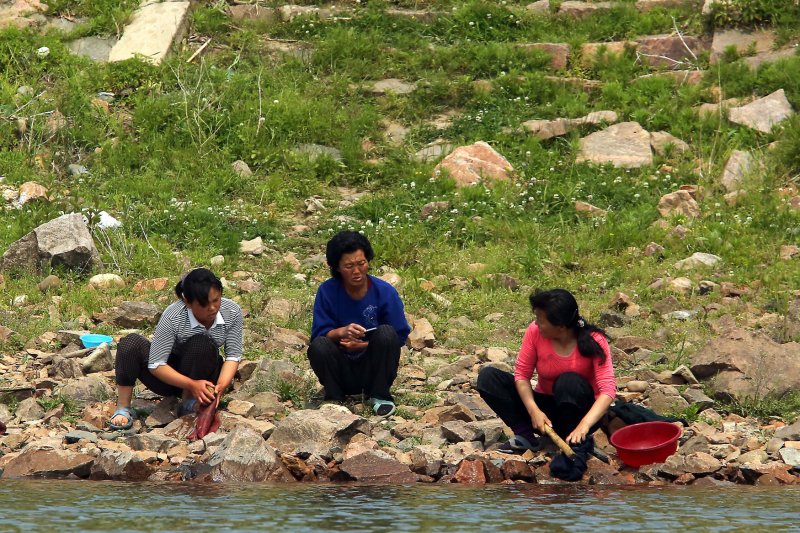North Korean women wash clothing on the banks of the Yalu River near Sinuiju, across the Yalu River from Dandong, China's largest border city with North Korea. In another border area facing China, North Korea plans to destroy 300 family homes, according to a source in the country. File Photo by Stephen Shaver |
License Photo
SEOUL, April 29 (UPI) -- North Korea is forcing 300 households to relocate from a border area as part of preparations for the May 6 Seventh Party Congress.
A source in the North's Yanggang Province told South Korean news service Daily NK authorities have issued the mandate for the residents of Hyesan.
The source said the "top recently instructed the overhaul of a border region, and for this purpose instructed the demolition of 300 residences along the Yalu River."
The houses are to be taken down at the end of Pyongyang's "70-day battle," a mass mobilization movement.
Authorities are also warning residents against voicing complaints about the policy, and have claimed that the move is to guard against "traitors of the country," the source said.
The source added the demolition could be taking place in order to build more security around the Yalu, where defections have taken place in the wake of sweeping economic sanctions against North Korea.
The residents who will have their homes involuntarily destroyed have been dispossessed of their certificates of residence, and only those with money are able to relocate to a new house, the source said.
Ordinary North Koreans have little say in what the state decides to do in its best interests.
Revolt, opposition and protest, however, are highly unlikely, according to Sergei Kurbanov, a North Korea expert at St. Petersburg University in Russia.
Speaking at the Asan Institute for Policy Studies in Seoul on Friday, Kurbanov said North Koreans couldn't organize protests because of a lack of transportation infrastructure in the country, Yonhap reported.
By contrast, Russians in the former Soviet Union were able to confront the government in the 1980s and 1990s, owing to the availability of a public transportation system, the analyst said.
Once outside Pyongyang, roads are in poor condition, but the situation could be improved if North Korea received more fossil fuel that could power public transportation and automobiles, Kurbanov said.















